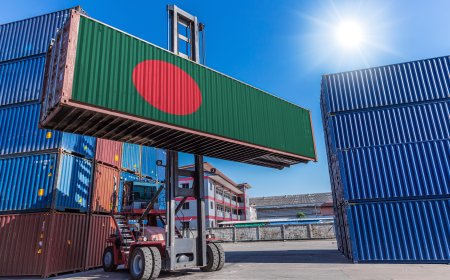The Constitutional Knights-Errant of 2025
By binding the concept of reform so tightly to the consensus commission's existence, and suggesting that the commission's end would spell the end of reform itself, we have propagated a dangerous fiction: that meaningful reform requires suspending normal democratic politics and governing through unelected technocrats.

Bangladesh has embarked on an unprecedented year-long constitutional reform process through the Consensus Commission, bringing together political parties in a dialogue that has no parallel in our nation's history. As this process nears its conclusion, however, the power of hindsight reveals crucial flaws in both the Commission's design and its execution.
We should have recognized from the outset that the various participants operated under fundamentally incompatible incentives. Political parties aspiring to power through elections had every reason to work efficiently toward an acceptable compromise. Meanwhile, parties currently wielding influence -- de facto if not de jure -- within the interim government faced a different calculus: from the perspective of power politics, prolonging the commission's deliberations meant extending their time in office.
Similarly, parties expecting opposition status in the next parliament, but enjoying sympathetic audiences within segments of the council of advisors, had little incentive to relinquish their current influence for the uncertain prospects of parliamentary opposition. This is not to impugn the honor of the parties involved, nor to diminish the dedication of civil society leaders who have labored to build consensus. Rather, it is simply to acknowledge the structural impediments built into the process itself.
This misalignment manifested most visibly in the ever-shifting demands placed before the BNP. Accept the Upper House, and others demand a referendum. Accept the referendum, and they insist it must precede parliamentary elections. Had BNP conceded on timing, one suspects the next demand would have been to delay elections by a year to allow the Commission to reconvene and "synthesize" the referendum results.
The pattern suggests that certain parties, intent on painting BNP as betrayers of the July uprising's spirit, have little interest in reaching any final agreement that would trigger elections and end their extended tenure in power.
The commission itself committed a cardinal error by relegating the question of implementation to the final stages of its work. Had it instead begun by establishing how its recommendations would be enacted, clarified the procedures for notes of dissent, and only then proposed reforms proportionate to the agreed implementation pathway, much of the current confusion and recrimination could have been avoided.
Structure should precede substance when designing institutional reform.
A common argument for delaying elections holds that a party winning 200+ seats with only 40% of the vote should not dictate Bangladesh's reform agenda.
But this objection misunderstands the nature of democratic governance.
A party securing 40% of the popular vote would represent the closest approximation of a politically viable and organized majority that Bangladesh can produce.
Such a party would have every democratic right to lead the reform process in the next parliament.
Equally unpersuasive is the specter raised that BNP, once in power, will replicate Sheikh Hasina's 2011 abandonment of the caretaker government system and commit similar democratic transgressions. This argument ignores fundamental realities: Tarique Rahman is not Sheikh Hasina; BNP is not Awami League; 2026 is not 2011; and the defining calculus of geo-strategy has shifted decisively beyond the War on Terror paradigm.
By binding the concept of reform so tightly to the consensus commission's existence, and suggesting that the commission's end would spell the end of reform itself, we have propagated a dangerous fiction: that meaningful reform requires suspending normal democratic politics and governing through unelected technocrats. This narrative divorces democratic politics from the very possibility of reform. All parties committed to democratic Bangladesh must demonstrate -- through both word and deed -- that electoral democracy can be the most reliable engine of reform in our society, government, and state. They must show that reform can continue across multiple electoral cycles, learning from past mistakes and addressing new challenges based on the people's verdict at the ballot box.
With Sheikh Hasina, Bangladesh always knew where it stood: she would kill, torture, and commit every crime imaginable to extend her rule by even a single day.
The current interim government leadership appears entranced by the trappings of office -- particularly foreign trips with head-of-government protocol -- while failing to address the fundamental damage inflicted on Bangladesh's constitutional and judicial architecture by the previous regime.
Meanwhile, the party expected to win the next election seems content to let others govern while it behaves as though already in power.
US Supreme Court Justice Benjamin N. Cardozo famously wrote that a judge "is not a knight-errant, roaming at will in pursuit of his own ideal of beauty or of goodness." Bangladesh has allowed its Consensus Commission knights-errant of 2025 to roam long and tilt at windmills. Perhaps it is time to allow political and electoral reality -- not philosophical idealism -- to fashion the next steps forward.
What's Your Reaction?














































































